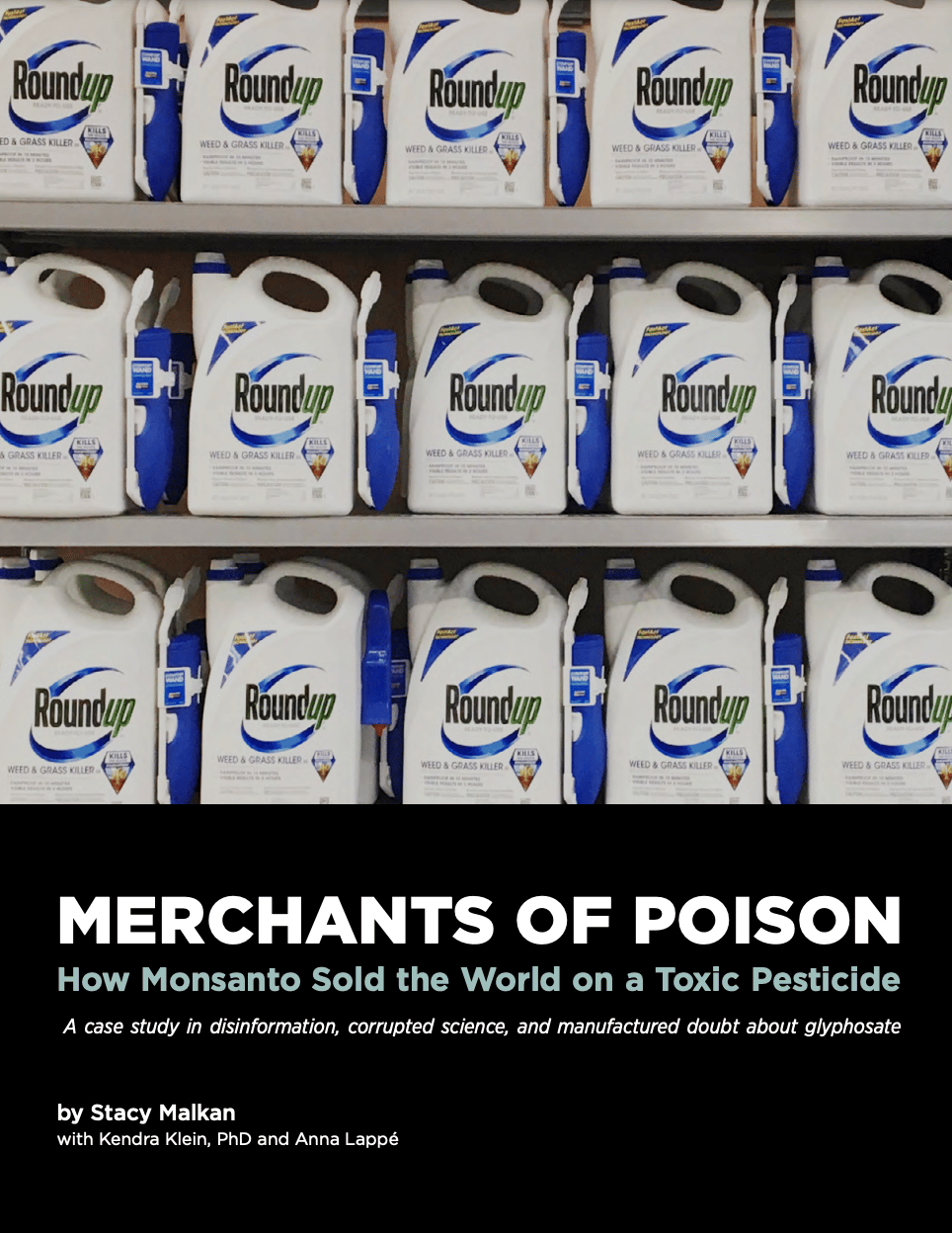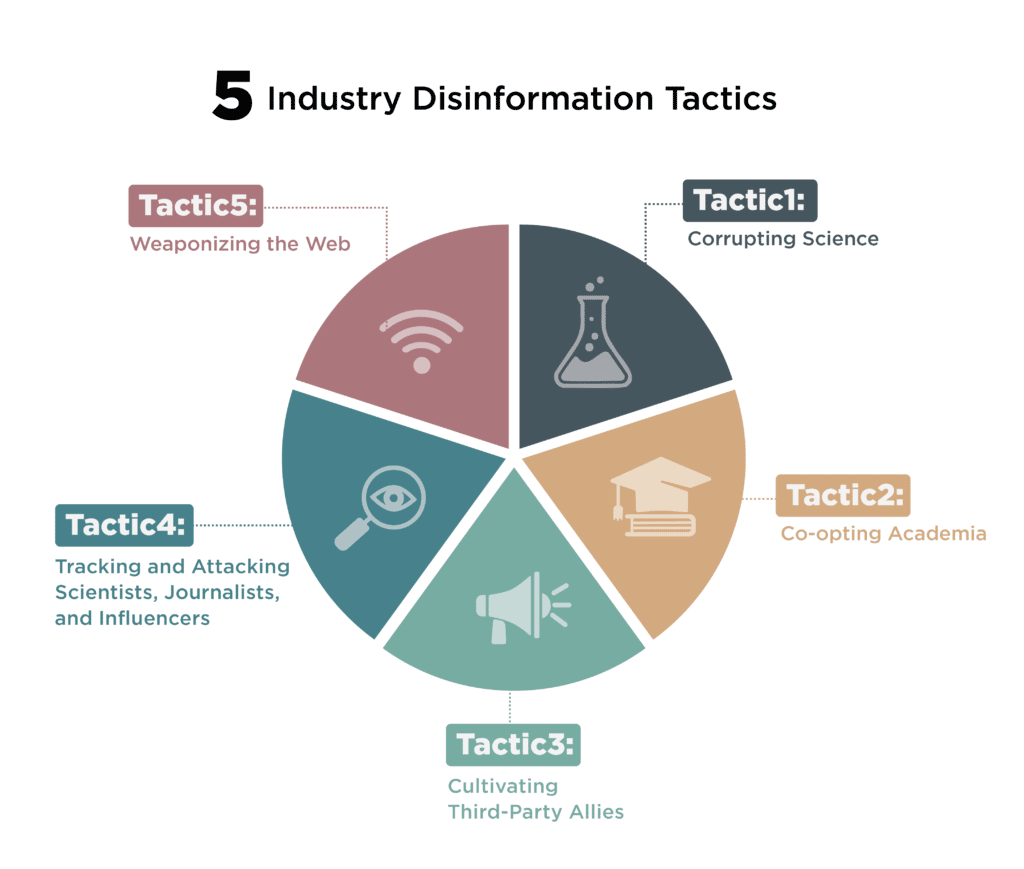Merchants of Poison: How Monsanto Sold the World on a Toxic Pesticide

A case study in disinformation, corrupted science, and manufactured doubt about glyphosate
Merchants of Poison, a report from U.S. Right to Know in collaboration with Friends of the Earth and Real Food Media, uncovers the disinformation strategies that allow pesticide companies like Bayer-Monsanto to keep profiting off of toxic products even while evidence mounts that these chemicals are costing people their lives, damaging children’s developing brains, threatening endangered species, and more.
Like Big Oil and Big Tobacco, pesticide companies spend millions on deceitful strategies to keep their hazardous products unregulated. In fact, the report reveals that, in some cases, the very same people and organizations are spreading disinformation for the pesticide, tobacco and fossil fuel industries.

Read the full report
Read the press release
What’s at Stake: Health, Climate and Biodiversity
Tactic 1: Corrupting Science
Tactic 2: Co-opting Academica
Tactic 3: Cultivating Third Party Allies
Tactic 4: Tracking and Attacking Scientists, Journalists and Influencers
Tactic 5: Weaponizing the Web
Debunking the Myth That Pesticides Are Safe and Necessary
What Can We Do?
Merchants of Poison details how pesticide giant Monsanto spent millions on deceptive communications strategies to convince the public that the world’s most widely used herbicide, Roundup, is “as safe as table salt.” Yet its main ingredient, glyphosate, was flagged as having the potential to cause cancer as far back as 1984 by a scientist at the U.S. Environmental Protection Agency.
The story of Roundup is not unique. It is just one of dozens of toxic pesticides that the pesticide industry has effectively kept on the market despite clear scientific evidence of harm. In fact, the EPA has approved use of over 80 pesticides that are banned in other countries.
As research reveals ever more about the serious threats pesticides pose to biodiversity and public health — and also shows how pesticides lead to resistant weeds and pests that plague farmers and reduce crop yields — the industry’s spin efforts have become increasingly brazen.
When we dissipate the industry fog around claims that we need pesticides to “feed the world,” we see that expert consensus around the globe shows that we need to rapidly transition away from pesticide-intensive agriculture to organic and other agroecological approaches in order to feed all people now and into the future. That is because pesticides pose a grave threat to the soil, water, climate, pollinators and other biodiversity we depend on to grow food. As one example, commonly used pesticides have made U.S. agriculture 48 times more toxic to pollinators and other beneficial insects in the past two decades.
We all have the right to food that is free of toxic pesticides. The farmers and farmworkers who grow our nation’s food, and their communities, have a right to not be exposed day in and day out to chemicals linked to cancer, asthma, reproductive and developmental harm and other serious health problems. And the way we grow food should protect rather than harm the ecosystems that sustain all life.
Related Resources
- Spinning Food: How food industry front groups and covert communications are shaping the story of food
- Follow the Honey: 7 ways pesticide companies are spinning the bee crisis to protect profits
- Buzz Kill: How industry is clipping the wings of bee protection efforts across the U.S.
- Farming for the Future: Organic and agroecological solutions to feed the world
Ways to Support Our Work

Read Latest News
Stay informed and inspired. Read our latest press releases to see how we’re making a difference for the planet.

See Our Impact
See the real wins your support made possible. Read about the campaign wins we’ve fought for and won together.

Donate Today
Help power change. It takes support from environmental champions like you to build a more healthy and just world.